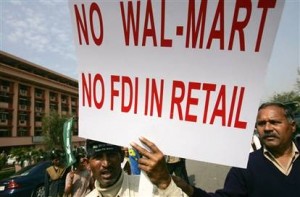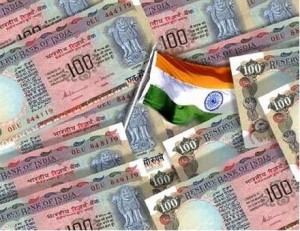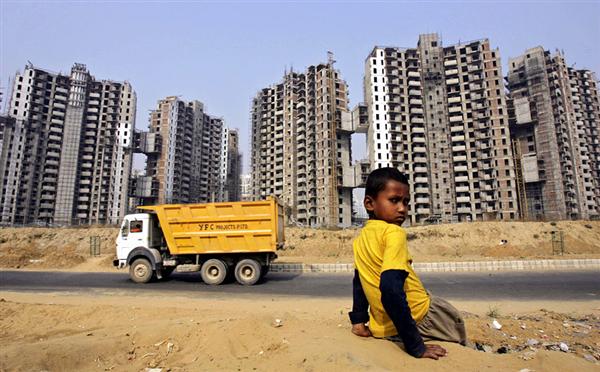Dear Editor,
(Or, rather, your sub-editor or whoever it is who reads your mail, because I am sure your exalted status relieves you from the onerous task of handling correspondence from mere readers.)
Before I go further, please note that the contents of this letter will be posted online on my blog and elsewhere, with full mention of The Shillong Times, because it has been my experience that there is some kind of unofficial “ban” in place on publishing my criticism of your articles and your alleged opinions (more often than not regurgitated wholesale from so-called “national” newspapers). Therefore, even if you choose to maintain your unspoken “ban” (which has endured by my reckoning for about four years now), you will have been named and shamed online. Be warned.
One of these alleged “editorial opinions” of yours is titled “Tactical Retreat” and was published on your paper of the 9th December. In it, you make some sweeping statements, which deserve examination in detail.
First, you (or, as is more likely, whoever you lifted your “opinions” from) claim Manmohan Singh had the “last laugh” in the end on the Nuclear Deal. I don’t know whether you are unaware of the nuclear reactor meltdown at Fukushima in Japan earlier this year, and the strong anti-nuclear-power agitations now ongoing in several parts of the country, or whether you merely chose to ignore it. From your newspaper’s flagrantly exposed ignorance of basic geographic and scientific facts in the past, the first is a real possibility. If not, you will note that not one of these nuclear reactors that were supposed to have solved our power problems (the USP of the Nuclear Deal) has come into service yet, and that the last four years of Congress party misrule has so devastated the nation that even such cravenly pro-Congress media outlets as yours cannot have escaped noticing the people’s disenchantment with the party. How is that the “last laugh”?
Then, you claim that you hope that Singh “will prevail again on the FDI in retail issue” because the “advantages are many”. Said advantages – according to you – are as follows:
1. India needs organized (sic) retail. Does it? Can you justify this statement? A look around shows that India is doing well enough with competing small-scale shops selling just about everything one needs. The huge and bustling markets of the cities may not be pretty, but they provide just about everything, at a reasonable price, and employ an uncountable number of people. Can you honestly state that organised retail outlets will be able to provide the same services? Who will absorb the millions thrown out of work? Will you, or those who you lifted your opinions from, provide these people with alternative employment? If not, how do you justify your claim?
2. Foreign investment in retail will bring in capital, expertise and competition. Capital to achieve what, precisely? Is there a shortage of capital in this country? If there is, why are we still talking about our alleged “booming” economy? If there is not, why should we bring in foreign capital, since said foreign capital can be as quickly withdrawn? If there is a threat of sudden withdrawal of this capital – for example, due to pro-worker labour laws – and a consequent fall in the stock market, will the government of the day stand by and allow this withdrawal, or will it bend over backwards to change laws and entice the capital to stay? What has been our experience so far on this point? And do you really have to be reminded that the East India Company first came as traders, got “concessions”, and used the excuse of “defence of trade rights and concessions” to colonise India?
As for expertise, is there a shortage of expertise in this nation? If so, why do we have Indian Institutes of Management?
 As for competition, a look around any of the markets I just mentioned will show you how much competition there is already, quite happily coexisting. Do we need more competition? If we do, does that competition have to come from foreign-owned retail chains?
As for competition, a look around any of the markets I just mentioned will show you how much competition there is already, quite happily coexisting. Do we need more competition? If we do, does that competition have to come from foreign-owned retail chains?
Assume, for the sake of argument, that FDI will bring in increased “competition”. Basically, what this will mean is that the huge international retail chains like Wal-Mart (which have tremendously deep pockets) will undercut and push out the original retail outlets from business. A look around the USA, where the traditional stores have vanished after the advent of these mega-stores, shows that this is not unlikely by any means. And once that happens, exactly what is to stop these retail chains – who then have a monopoly – from charging whatever they want? Nothing.
While on the subject, the ethics, not to say legality, of these retail chains are deeply suspect. As we all know, the same neoliberal “economists” who push FDI are also strongly in support of weak labour laws and “hire and fire” policies. This basically means that nobody is secure in his or her job, and can be replaced at any time by someone asking for even lower wages – no matter how much work he or she has put into the job or is willing to. This sounds very nice to those people sitting on a huge cushion of money, but I wonder if you – the editor of a minor, fifth-rated newspaper – or your minions would like to live in a situation where you could be dismissed without notice because someone else is willing to work for a thousand rupees less a month. Would you? No? Then by what right are you wishing this fate on others?
3. The produce of farmers will fetch higher prices. How, exactly, is this miracle supposed to happen? FDI will result in the big retail chains looking for the cheapest sources in order to maximise profits. If they paid higher prices, it would go directly against the idea of competition reducing prices, which was your earlier point. Therefore, it will directly result in farmers undercutting each other in order to sell to them – and even there they will be undercut by organised factory-farming – the kind of factory-farming the West is now trying desperately to abandon in favour of more sustainable, not to mention healthy, practices. As for technology, that can be imported without the necessity of handing over ownership of the economy to foreign concerns. Your argument veers dangerously close to the idea that colonialism was good because the colonised countries wouldn’t have got trains and telegraphs otherwise, something once again being claimed by neo-imperialists these days.
4. The supply chain will be shorter and more efficient. How? By the retail chain owners going direct to the farmers in the fields and buying from them? In that case, what is to prevent them from beating down the farmers’ prices since only those who sell at the cheapest rates will get the sales orders? If the government has to step in to ensure a fair price to the farmers, what’s the difference from the current system?
5. (T)he consumer will be benefited, price-wise and in getting easier access to essential goods. How will the consumer get easier access to “essential” goods? If we define “essential goods” as food, clothing, and medicine, they are available in most markets already, in every city and village. And about prices, if the FDI is allowed, according to what we’ve seen worldwide, the consequences will be that the prices of medicines, especially, will rise sky-high in the name of protecting intellectual property rights.
6. New investment will pour into manufacturing and more jobs will be created in the sector. Is this “jobs” in the sense of “slave-labour style sweatshops”? Because that’s the kind of “jobs” that have been created by the advent of FDI as seen worldwide. FDI will only “create jobs” where profit can be maximised – meaning where the least wages have to be paid and the maximum work extracted for the minimum side benefits. And if the economy of the nations the produce is to be marketed in suffers, and the market collapses, the factories will close and the slave labour workforce thrown out of even the pittance they are earning. I trust even you are aware of the parlous state of the European and American economies at the moment?
7. Giving in to the opposition and dropping the proposal would seem unwise and pusillanimous on the part of the UPA government. This is called the democratic system. It’s why an Opposition exists and this is not a monarchy under the Nehru-Gandhi dynasty. The Opposition is meant to pressure the government into abandoning unwise or unpopular policies. If your paper does not like the system, it should openly state that and suggest what kind of system it wants.
I would love to read your replies to these questions, if you are capable of answering them. After all, there’s no reason you shouldn’t be. Since you either wrote this editorial or allowed its contents to be published in your paper, you obviously subscribe to its contents. You are a national prize-winning columnist with the entire resources of your editorial staff to call on. I’m only a private citizen with no education in economics. You should find it easy to blow me away.
If, however, you are unable or choose not to respond, it means you have no business publishing opinions you are unable to defend. I would go further and state that you have no business being the editor of a newspaper at all.
I look forward with keen interest to your response. If any.


Bill, it sounds like the corporates are busily invading the financial district and hand shaking with the media, slipping a little extra cash under the table for favored reviews and public support. You’ve gotta love the way their minds work. They have selective smelling. The noses catch the scent of money and follow it wherever it goes, even if they’re wading through headless corpses to get there. Hey, they did it to Mexico. As soon as the government stabilized its currency by switching to a new one, and the people began to enjoy an adequate income once again, Walmarts and McDonalds came crashing in with their big, round butts, and all but destroyed the traditional open market, street side vendors, localized restaurants and domestic goods. Not content with that, they authorized a drug war against a people who were originally just protesting their loss of livelihood.
The commercial fisheries in Alaska have all but strangled the village fisheries that traditionally had earned their livelihood through the fishing trade. Now, many of the villages that had once been thriving, are destitute. Some did not have the funds to pay their winter energy rates. Not even the State of Alaska was moved enough to take pity. What should be to our lasting shame, Venezuela bailed these villages out; not once; but three times, the last time with Alaskan legislators begging them to bail out the villages one last time. This year will be very interesting. According to the media, tankers were not able to get into the far north harbors ahead of the Great Chukchi Sea Storm, and that gasoline rates are expected to soar to over ten dollars a gallon in these areas before winter is over. Russia says they will come to the rescue with an ice breaker for bringing fuel. So much for “evil” Venezuela and “evil” Russia.
Bill, I would love to see you post the editor’s answer which I read elsewhere. I think it very telling of how condescending the editor is to readers.
Here you are, Grainne:
I do not recall having ever received any kind of letter from you protesting the contents of an editorial or a story or whatever that appeared in The Shillong Times. If you have written such a letter I would like to know when and also to see the contents. Hence I consider it rather premature on your part to pass such a silly judgement on my capability as editor. We believe in a free press but a letter is not a declamation of an ideological stance of any reader. It must be crisp and to the point and not run into thousands of words. it is distinct from an article. The letters column is not your blog. Please go right ahead and mention us by name. We take positions on some issues we believe to be in the larger interests of the country and do not take any politically nuanced ideological positions which evidently you have. Please read Swaminathan Aiyar’s and Swapan Dasgupta’s very balanced articles on FDI (Dec 4, 2011) and their critique on the stance taken by the right and left parties to have a larger perspective and not a politically induced one on the issue of FDI.
I have published letters lambasting my articles without any fear of losing face because i believe that a public viewpoint must be contested publicly. So there is no question of our gagging ourselves for fear of criticism. Our readers know us and I believe they also know our editorial position. But we also know that there will also be disgruntled elements who would want to trash us. To such readers we have nothing to say.
Editor
Meaning, basically, that she has no opinions of her own. The two people she mentions are a well known neoliberal propagandist (Anklesaria Aiyar, who incidentally was a fanatic supporter of the Iraq invasion and wanted India to send troops) and a right wing Hindunazi loon (Swapan Dasgupta).
Incidentally, it’s a fairly open secret in Shillong that she does not write her own columns. It’s widely believed that she gets them written for her, and I can attest that her writing style varies so wildly from article to article that it seems incredible that they can all be written by the same person.
The interesting thing to me is that like so many newsprint editors she doesn’t address any of the points brought against her. I have had that happen to me as well, when I carried on a two year writing campaign to bring out a local editor who didn’t know the first thing about the community he was in. Fortunately here, the guy finally started unravelling.
It seems to me that she seems set on not addressing what she obviously knows nothing about. Sometimes the brief “I know more that you,nah, nah, na, nah ,nah.” answer tells the cognizent human that she really doesn’t even know what was presented in the original article.
Very clever double talk. In one sentence she allows the dissent of readers who lambast her, in the second, she “also knows” there are disgruntled readers “who want to trash us”, so to them she has nothing to say. In other words, if a reply requires a meditated answer or an opposing article with counter-points, she’s too lazy to draw upon factual resources for answers.
This is typical of syndicated newspapers. While reporting takes the appearance of being objective, the slant is generally a corporate view as the corporates are what’s keeping their pocketbook’s lined. It doesn’t matter a whit how good a writer you are or how well you present your argument. If you are not catering to their overall agenda, you don’t belong on the newspaper. This is why alternative and ad hoc press spring up. They may not reach as large a readership or gain much recognition as they don’t have the generous finances fueling their enterprise, but it’s the only way dissenting views can be presented without bias, without censorship and without discrediting the author on opinion alone.
Best response ever, Mitch.